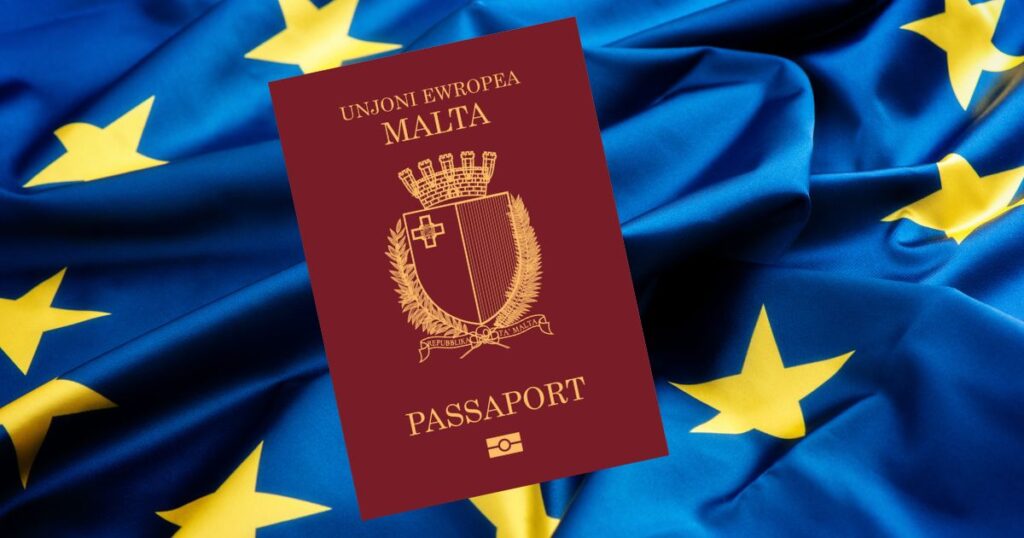The Citizenship By investment schemes (CBI) pose several risks, unless proper vetting is done on candidates applying for investment schemes. Recently United Kingdom and European Union has removed visa free perk to passport holders of certain countries who pose a threat to external borders abusing visa waiver agreements. Previously Canada impose a visas on caribbean nations running CBI schemes. This is a major risk stems from third countries that have CBI schemes and that benefit from visa-free travel as unqualified third-country nationals can purchase citizenship/passport of those third countries with the sole purpose of being able to enter the UK, EU and other countries without any additional screening.
The Due diligence checks done by government and security agencies is the core of the CBI industry protecting the integrity of such programs. Cyprus, Bulgaria, Moldova already terminated their CBI schemes citing corruption and money laundering risks.
The European Commission in its investor citizenship report has exposed vulnerability in CBI schemes pose serious security risks (criminals and wanted persons who get their hands on their passport), risks of money laundering and corruption, tax evasion and putting pressure on local real estate market by artificially inflating prices as result of the flow of dirty money. The screening of applications for the investment citizenship schemes does not guarantee a high level of security. The report found that applicants are often granted citizenship without any physical residence in the Member States concerned and without any genuine link to them. Individuals applying for CBI schemes are abruptly granted new or additional citizenships which may help to obscure the actual tax residence of the individual, leading to the tax rules in their original country to be circumvented. The flow of unchecked money also puts strain on banking systems including correspondent bank relationships.
The 5th Anti-Money Laundering Directive, which entered into force on 9 July 2018, introduced an amendment requiring enhanced customer due diligence on nationals from third-countries who apply “for residence rights or citizenship in the Member State in exchange of capital transfers, purchase of property or government bonds, or investment in corporate entities in that Member State”. The citizenship schemes are commonly advertised as a way to by-pass the Schengen visa procedure and easily obtain visa-free access to the EU and other countries. The attractiveness further increased based on their fast track application procedures and poor checks on the background and origin of the funds. Infact, many countries does not differentiate between passports issued under citizenship by investment schemes and other passports.
We will expose such risk and how more stringent security measures can be applied..
1. Applicants conceal their visa refusals in their citizenship application to acquire passports.
This poses a threat to external borders of schengen states and other countries if no poor vetting is done. These people try to get the citizenship of a CBI country, which has visa-free access for short stays, circumventing the regular Schengen visa procedure. This can lead to cancellation of visa waiver agreements and puts strain on diplomatic relations.
Solution: Check passport stamps and collect visa denied from applicants before boarding a client.
2. Applicants from sanctioned countries under UN/OFAC/EU/US/UK embargo or trade sanctions.
Doing business or financial transactions is prohibited from these countries, also individuals and companies. . People from these countries try to circumvent the sanctions, by applying for citizenship and residency in third countries. Do not accept nationals from these countries. For dual national, check the place of birth (POB) in their passports. If the POB in from a country targeted by sanctions, do not board.
- OFAC List of countries – Russia, Iran, Belarus, North Korea, Venezuela . Refer to sanctions full list
- EU List of countries – Russia, Belarus, Syria, Libya, D.Congo.
- UK Financial sanctions – Russia, N.Korea, Syria, Iran etc.
- OECD Tax blacklist – Vanuatu, Monaco, Marshall Islands
3. Thorough Scrutiny of family members
It is also possible main applicants who have a questionable background appoint family members (with clean background) as main applicant to thwart background checks. Therefore a comprehensive check is required for all family members.
4. Criminal record and wanted by law enforcement
The granting of citizenship to applicants listed in international wanted person or Interpol databases pose a major security risk. It could be possible that the person of interest, could have lived in many countries and escaped law enforcement prosecution. To close this loophole, seek Police criminal record certificate (national level) for applicant from home country and in ALL countries lived in the past 10 years for more than three months. Dual nationals must also comply with this requirement providing the criminal record certificate from all countries of citizenship.
5. Applicants asking for Change of Name
Many third countries to allow their citizens to change their name poses a risk because third-country nationals could acquire citizenship of a third country under a CBI scheme and then change their name creating a new identity and enter the schengen area that new name, thus bypassing schengen visa checks.
Solution: Applicants asking for name change is a “Red flag” could be something sinister behind. Subject them to more enhanced due diligence checks.
6. Proper Vetting of Agents, Property developers and Promoters
All promoters and agents must be subjected to thorough background checks same as applicants.
7. Anti-corruption
Anti-corruption measures must be adopted in CBI laws to prevent corrupt officials within the government who pocket the CBI money meant to carry out due diligence.
8. Low rejection rate
The extremely low rejection rate is a concern, which raises doubts as to the reliability of the security and due diligence screening
9. Absence of physical presence or residence.
The absence of physical presence or residence requirements, short processing periods and lack of information exchange with applicants’ countries of origin or residence. This presents no genuine link or connection to the country.
10. Money laundering checks
Countries must enact a regulation should contain high standards and procedures for increased due diligence and rigorous background checks for applicants and for the source of their wealth. According to OECD, second passports obtained through CBI can be used for opening bank accounts in tax havens to facilitate laundering of dirty money.
11. Eliminate Harmful Real estate practises
A number of ineligible and undesired people who don’t have the required money apply for citizenship by investment undercutting the minimum investment, by taking advantage of loans and buyback offers for real estate investment scam promoted by unlicensed agents. This loophole can be closed by adding another requirement of minimum net worth of client must be above USD 150,000 or more. (eg. property, investment, cash, deposits etc.)
Government must not approve ghost developments which only seek investments and no construction ever take place to protect international investors.
12. Stretch processing times to give time for DD checks
The speed of processing applications within 90 days is also a case of concern indicating no deep level background checks are done. Stretch the processing times to 4-6 months to give more time to due diligence providers
13. Biometric data
Do not trust the biometric data provided by the applicant themselves (eg. thumbprint) in the applications (easy to impersonate). Have them come to consulate or visit passport office in person to verify authenticity. This could be a potential security threat.
14. Impose Face to face interviews and visits
Do not hand over passports to someone lack credibility. Imposing face to face interviews and having them visit the country once is an important security check. It is a shame that many who apply for CBI, do not even know where the country exists on a map.
15. Shadow and shell companies
To prevent money laundering from criminal proceeds, funds could come from shadow or shell companies from tax havens. The beneficial owner is not disclosed. Do a thorough vetting of the companies background, bank statements with suspicious transactions. Do not accept funds coming from company bank account, unless the applicant provides proof for shareholder, director of the company. Companies must not have frozen assets in the EU/UK and not in sanctions list.
16. Dual citizenship restricted nations.
Apply additional diligence on people who come countries from dual citizenship is prohibited. eg. China, India. Many disgruntled agents do not inform clients the implications of dual citizenship. For example in China, after acquiring dual citizenship, may even be charged by the Chinese Government of violating the Chinese Constitution for not surrendering their Chinese Citizenship and Passports. If found guilty, they will lose all their property assets and rights in China, and if lucky be treated. Please seek legal advice before commencing second citizenship process.
Basic KYC Checks
The following are some of the important basic due diligence checks CBI agents must do:
Know Your Customer (KYC): Thoroughly check all the application documents of main applicant including all family members. Birth certificate, marriage certificates are the most important documents, must be authenticated with Apostille. Any inconsistencies must be checked with the nearest embassy/consulate. Be aware of fake, bogus and fabricated documents sent online (must be checked requesting a DD report through third party due diligence firms)
Know Your Customer Customer (KYCC): For companies and businesses, check all the corporate documents, licenses, financial statements and do a KYCC on customers of the company (invoices etc). Entities operating from offshore jurisdictions needs a closer look. Must check the company status from online company registrar databases such as Dun and Bradstreet (DNB) or Kompass.com.
Passports & Visas: Check the passport stamps and visas to see where he has traveled (any high risk countries?). If he is a dual citizen, check the Place of Birth (POB) in all passports. This field never changes, no matter where he lived or acquired different passports.
Sanctions: There is a high risk accepting CBI applications from countries hit by OFAC sanctions, EU sanctions.
Extra Scrutiny: The US has announced extra scrutiny for non-resident US visa applications coming from CBI passport holders (eg. for E-2 visa) without a long term established residence or connection to consular district.
Enhanced due diligence – Subject suspicious applications and high risk and politically exposed persons (PEP) to enhanced background checks which takes more time to complete. Malta employs gold standard vetting checks which involves seven layers of risk matrix, touted best in the CBI industry.
Anti-Money Laundering (AML): Verify the sources of funds from the customer, such as bank statements, investments, inflow and outflow of funds between countries. Close scrutiny required for origin of money and transfers from high risk countries including known tax havens. Request references from bankers for clean money. The reputation of banks must also be checked. The EU maintains a list of countries on tax blacklist
Red Flags
Watch out for these red flags, needs a closer look.
- Visa refusals : Visa refusals are considered high risk for CBI programs, deserves a closer look on why visa was denied by the consulate. CIUs may refuse citizenship applications, because of the visa waiver agreements. Check for visa refusals and ESTAs from United States, United Kingdom, Canada, Australia, EU member states.
- Name Change: Change of name needs a closer look.
- Rush in applying for citizenship: Some clients show a sudden rush in applying for CIPs, which is a potential red flag. They deserve a special attention.
- Lack of documentation such as inability to obtain police certificates, which is needed from every country they have lived in the past ten years.
Preventive Measures
Governments must take these strong preventive measures in place, to protect the CBI schemes from constant abuse.
- Admit only applicants who have had UK, US, Canada or schengen visa issued (thus already passed the security checks done by authorities)
- Impose blanket ban on applicants under US/EU blacklist and OFAC sanctions ban (eg. Iran, North Korea etc) irrespective of where they live.
- Appoint atleast three international due diligence firms for vetting (internationally renowned firms)
- Apply enhanced due diligence checks on High risk candidates and PEPs.
- Thorough scrutiny to verify documents provided. Seek external help (eg. embassy)
- All family members must go through additional due diligence checks (charge additional fee)
- Impose genuine link ties to the country.
- Impose minimum net asset requirement of $150,000 or more as additional layer to prevent ineligible people applying for CBI undercutting the required minimum. Ban all types of loans provided by unlicensed agents and make sure only people who have the necessary financial means money will apply.
- Tighten regulations under real estate investment.
- Remove confusion and operate only one donation program
- Train compliance officers with screening and background checks.
- Seek advice and cooperation with other countries operating CBI program. (eg. Malta is known for gold standard vetting)
- Improve refusal rates on applicants who fail security checks.
- Automatically refuse applicants refused by other CBI programs.
- Improve transparency with CBI programs (a proper record on revenues, passports issue, and how money is spent).
- Publish names of all economic citizens in gazette so that people of the country know who these people are and where they come from.
- Appoint a reputable third party firm to design and implement an international standard CBI program.
- Inform clients properly about implications of dual citizenship.
- Implement a escrow legislation to protect real estate investors. Do not approve ghost developments to protect investors.
- Increase vetting time to 4 months to ensure smooth and detailed background checks.
- Reduce passport validity to 5 years to monitor applicants for fraud, wanted list. Important to plug this loophole prevent future criminals. Do another vetting at the time of renewing passport after expiry.
- Impose mandatory face to face checks for interviews, biometric data oaths at consulate to verify credibility.
- Impose a one time personal visit to the nation to get to know more about the people, country, culture, citizen responsibilities and establish genuine ties to the nation.
Conclusion
As a result of this, all countries that run CBI schemes must work collectively take immediate preventive measures to protect visa waiver agreements by applying stringent checks thus preventing granting of passports to wrong kind of people. The international reputation and integrity of the citizenship by investment is at stake.
References
https://eur-lex.europa.eu/legal-content/EN/TXT/HTML/?uri=OJ%3AL%3A2023%3A032%3AFULL
https://www.europarl.europa.eu/doceo/document/A-9-2022-0028_EN.html
https://www.europarl.europa.eu/doceo/document/A-9-2022-0028_EN.html
https://www.canada.ca/en/immigration-refugees-citizenship/news/notices/notice-kitts-nevis-citizens-need-visa-travel-canada.html
https://investmentmigration.org/wp-content/uploads/2020/07/DD-in-IM-Best-Approach-and-Minimum-Standard-Recommendations-January-2020.pdf
https://www.refinitiv.com/content/dam/marketing/en_us/documents/brochures/investment-migration-due-diligence-reports-re1500307-risk-brochure.pdf





